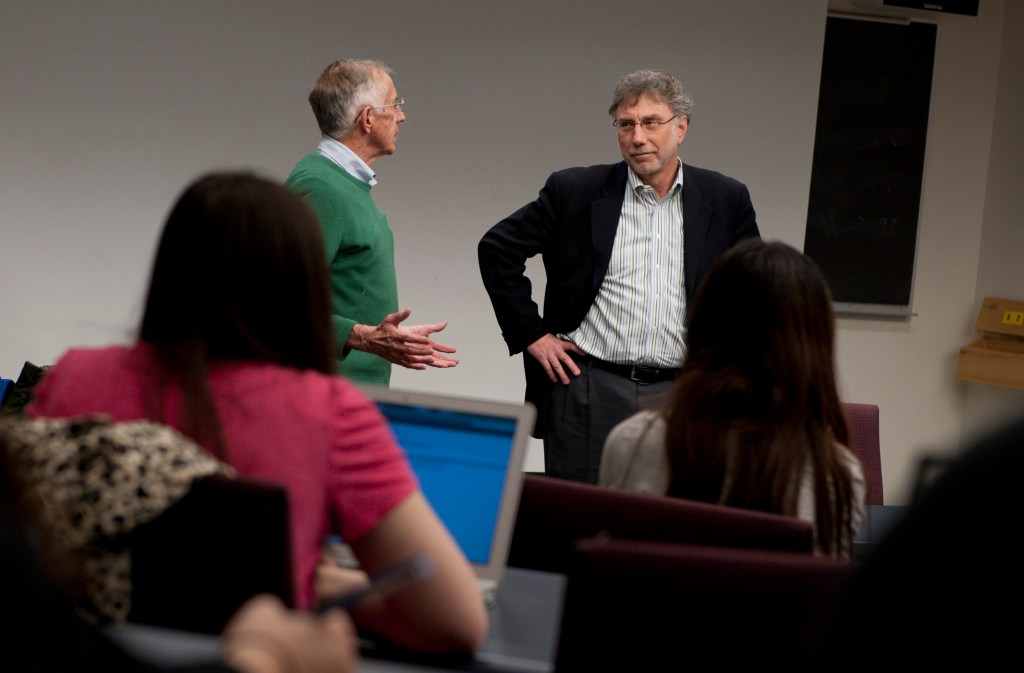On the record with top Globe editor

What makes a reporter indispensible? In this age of journalistic belt-tightening, Martin Baron ought to know best.
The person should be an excellent reporter with equally impressive writing skills. The reporter should welcome collaboration and a broad range of assignments, and ought to be well-versed in new journalistic tools, like programming and data-mining.
“If someone could do all of what I just described, you’d need to let me know because that would be a great hire,” said Baron, the editor-in-chief of The Boston Globe, who spoke last week to professor Nicholas Daniloff’s journalism ethics course.
“When we hire somebody, especially someone who is recently out of college, we want them to have skills that we don’t have in abundance in our newsroom. So when we’re looking to hire somebody … we expect them to be able to do something [that other reporters cannot do] and be able to transmit those skills to others on our staff,” Baron said.
In his hourlong visit to campus last Thursday, Baron fielded questions from students on a variety of issues, mostly related to the role of journalistic ethics in an age in which more and more journalists report on platforms other than legacy institutions like newspapers, magazines and broadcast stations.
While reporters once relied on organizations with “their own ink and printing presses and distribution systems,” new reporters can get started with just a website, blog or Twitter feed. Since they are often working out a support system, new journalists must be even more aware of ethics.
“These days, all that power rests in your hands, on your iPads or your mobile devices,” Baron told the students. “So I think it’s a good idea to think about what circumstances may be — it’s not mathematics, it may not always be clear what the right and wrong answer is.”
Given that nowadays any local story can become national or even global news, ethical missteps can reverberate on a much larger scale, Baron warned.
“We all make mistakes, sometimes more severe mistakes than others,” Baron said. “Because of that, it’s a good idea to think it through in the classroom setting before you’re out in the real world. These days, we have an environment in which the consequences of an error are far greater than they were when I was starting out in journalism.”
Northeastern’s School of Journalism, in the College of Arts, Media and Design, has strong ties to the Globe. It sends reporters to work as co-ops and interns to the Globe and its website. One of the school’s top faculty members, Distinguished Professor of Journalism Walter Robinson, spent a prominent career at the paper, winning a Pulitzer Prize in 2003 for the Spotlight Team’s coverage of the sex abuse scandal in the Catholic Church.





